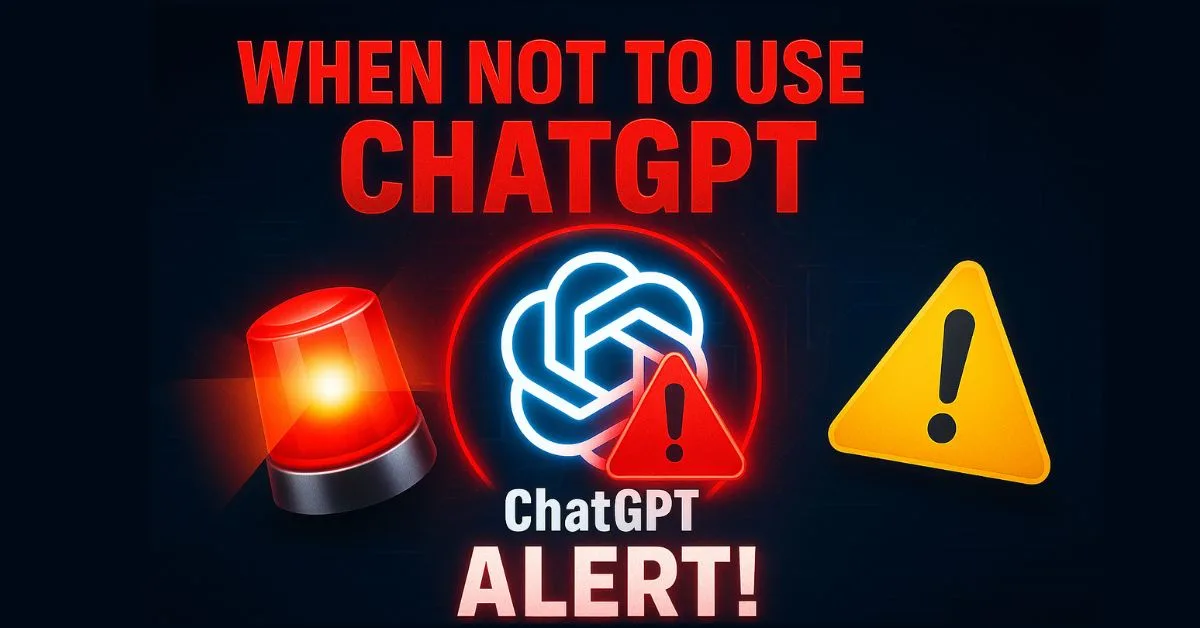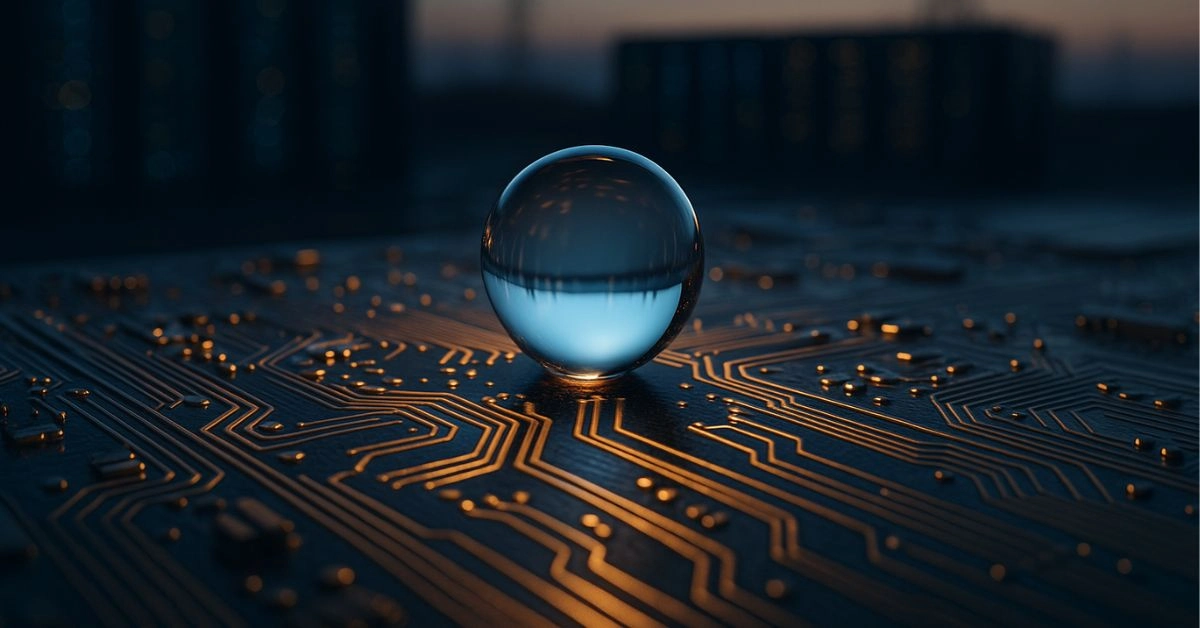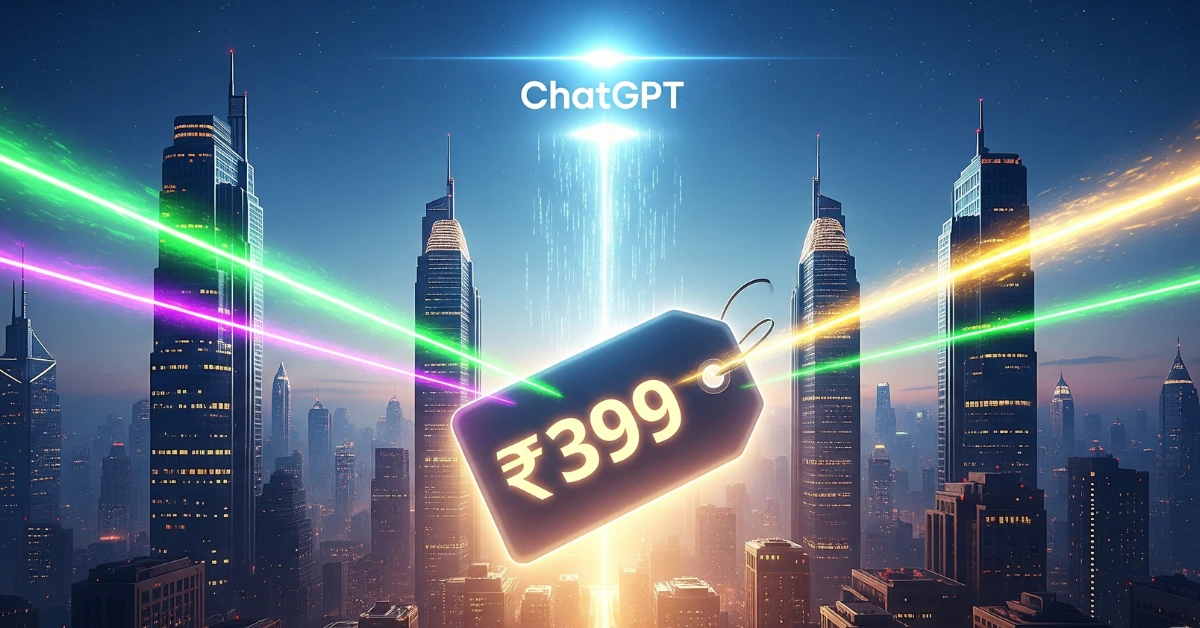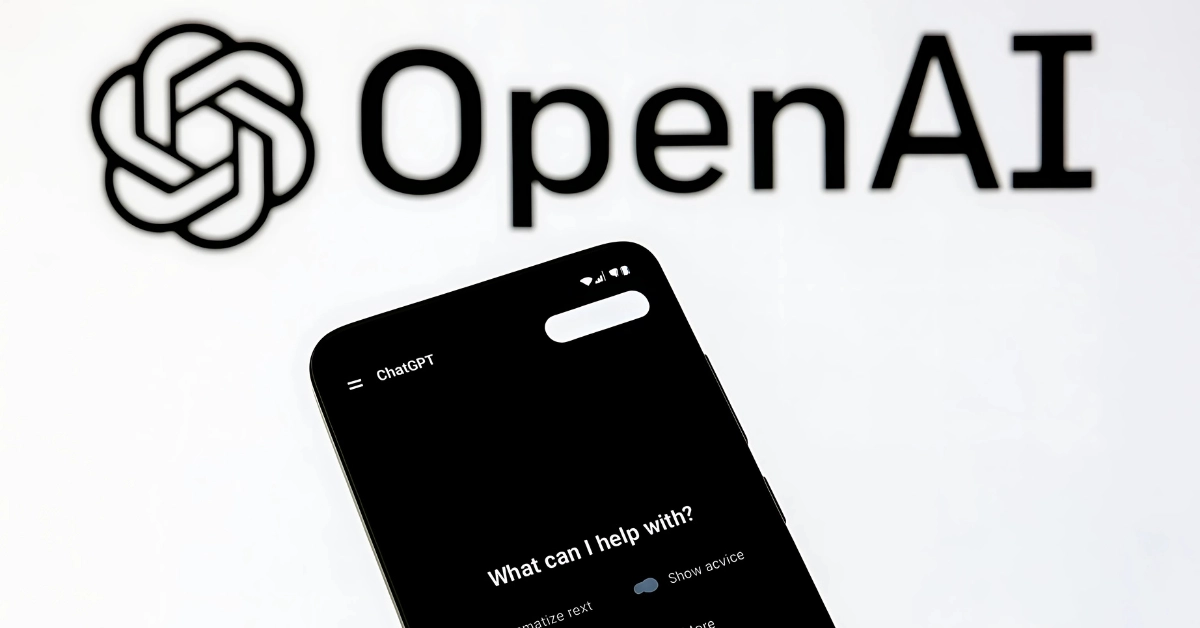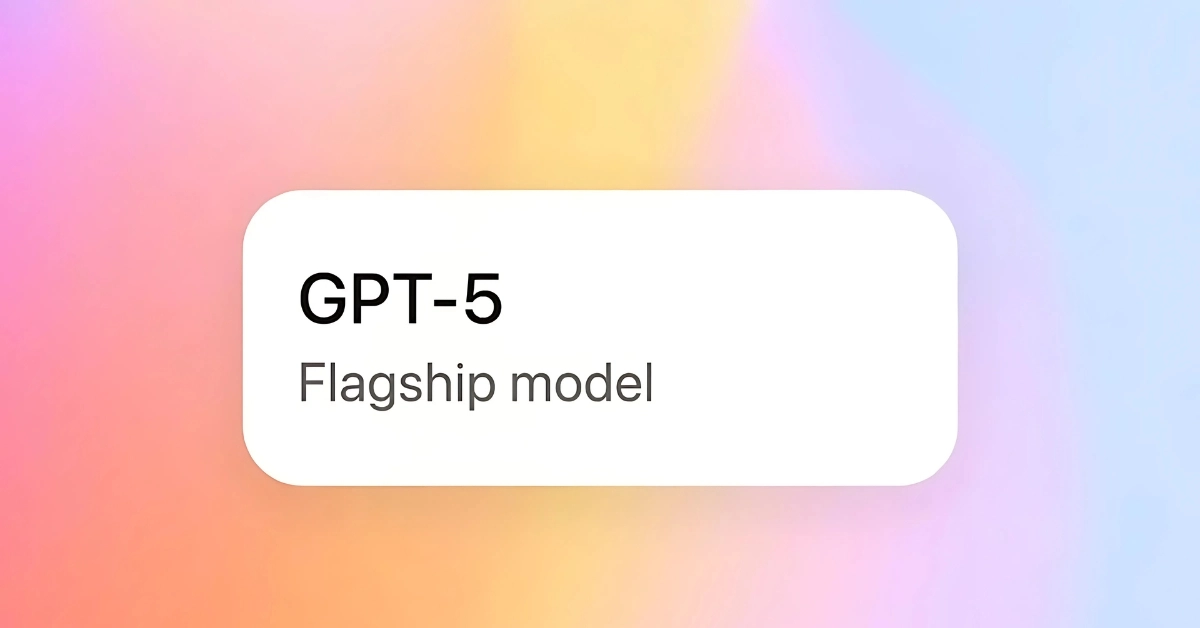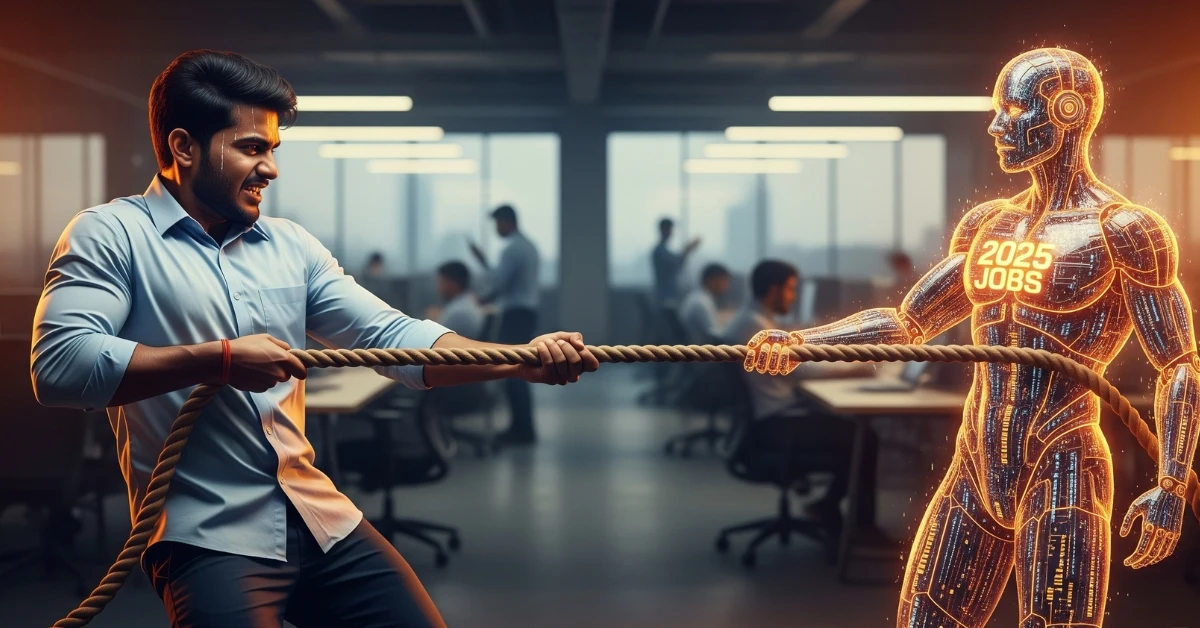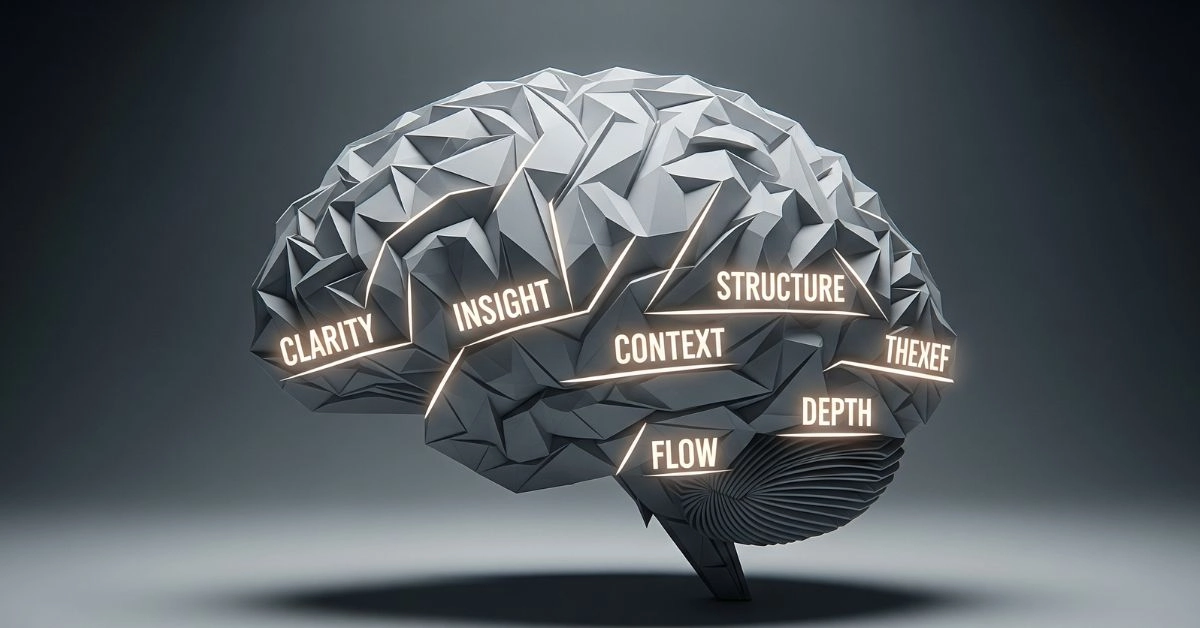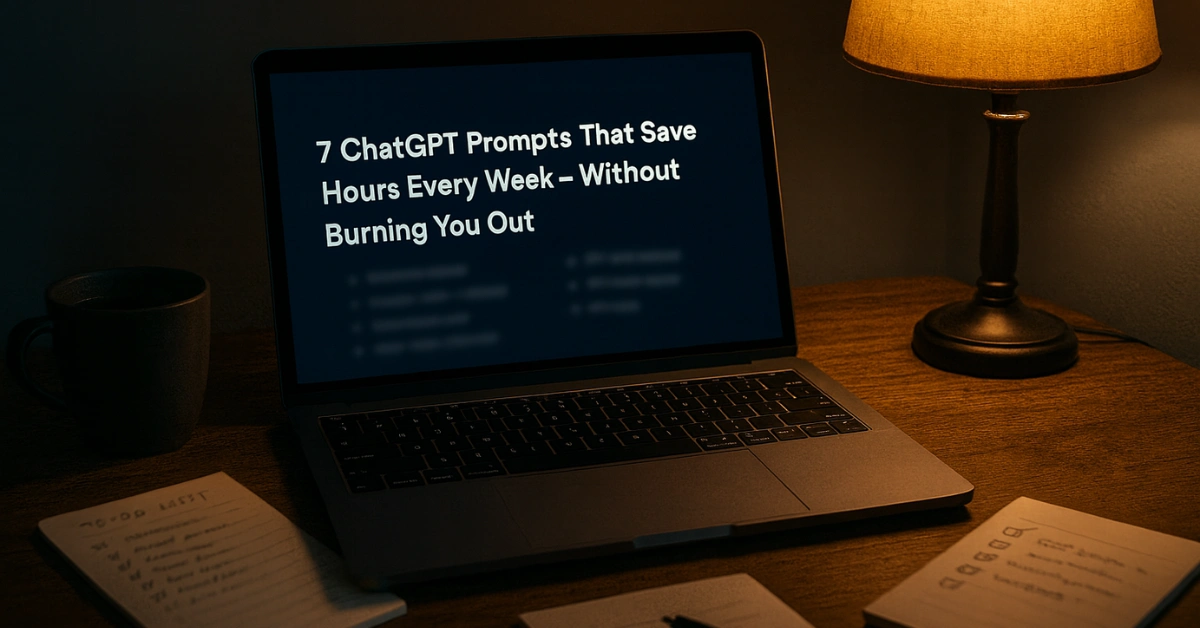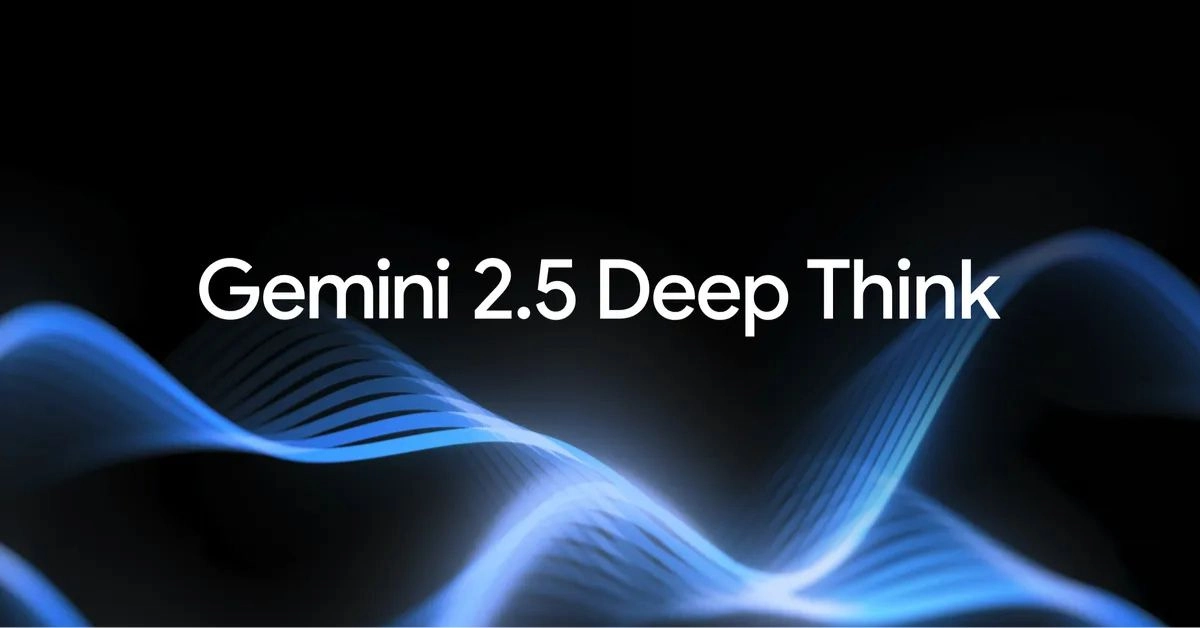Written by Mohit Singhania | Updated: July 4, 2025 | TechMasala.in
This Isn’t a Tech Prediction. It’s a Storm Warning.
I’ve seen tech headlines scream revolution before, but this one hit different. Vinod Khosla, one of the sharpest investors in Silicon Valley, just predicted that artificial intelligence will replace 80 percent of economically valuable jobs by 2030. And by 2040, most people may not even need to work to survive. As he told Fortune in July 2025, this shift is not something to ignore.
This isn’t some distant theory. He’s talking about it happening within five years. Not just affecting factory workers or delivery boys, but targeting highly paid professionals, white-collar jobs, and even C-suite roles. The kind of careers we believed were safe from automation.
AI replacing jobs isn’t a concept anymore. It’s the daily headline we keep ignoring. Khosla isn’t being dramatic. He’s stating the obvious. And honestly, the scariest part is how few people are paying attention.
The Vinod Khosla AI Job Prediction Is Already Happening Around You
Khosla doesn’t toss predictions lightly. He’s the kind of guy who spots trends before they hit headlines. He backed Square and Instacart when they were just ideas. Now he’s warning that we’re facing the most aggressive technology shift since the 1960s, and this time it’s unfolding in fast forward.
This isn’t your usual digital upgrade. This is an AI tsunami. Whole industries are being redefined in real time. Work is getting automated faster than we can reskill. And we’re already seeing the signs.
OpenAI Codex is already writing working code, replacing entry-level developers in real-world companies. IBM paused hiring for thousands of roles because AI can do the same work in less time and at lower cost. This kind of job automation by AI isn’t coming. It’s already reshaping entire departments inside tech companies and banks.
The Vinod Khosla AI job prediction isn’t a theory anymore. It’s happening in front of us. And still, most people don’t see it coming.
Big Companies Are Not Too Big to Fall. They’re Too Slow to Survive.
Khosla was brutally honest about this. He believes the Fortune 500 will crumble faster in the 2030s than ever before. This won’t be a slow fade. It’ll be a series of dramatic collapses.
Think about companies that once dominated their industries. Brands like Nokia, BlackBerry, and Yahoo felt permanent at one time. All of them fell because they couldn’t keep up with the pace of change. Now imagine that kind of downfall hitting dozens of today’s biggest global giants, happening even faster and at a much larger scale. That’s the power of AI-powered disruption.
The relationship between AI and Fortune 500 companies is no longer cooperative. It’s adversarial. AI is the disruptor they never prepared for.
Startups are already building lean, AI-first businesses that move at ten times the speed. They don’t need huge teams. They don’t care about legacy systems. They just solve problems better. And that’s the real threat to the old guard.

Could the Vinod Khosla AI Job Prediction Mean the End of Work?
Khosla said something most people aren’t ready to hear. By 2040, the need to work may disappear. Not because people will get lazy, but because AI and automation will make survival cheap and abundant.
No more grinding for bills. No more working just to keep the lights on. People will work only if they want to, not because they have to.
Sounds like freedom, right? But there’s a flip side. If work goes away, what replaces the structure, the pride, the identity that comes with it? That’s the deeper crisis no one is preparing for. Khosla’s prediction isn’t just about losing jobs. It’s about rethinking life itself. The future of work may not involve work at all.
India’s Health Crisis Finally Has a Cure, But Only If We Don’t Waste the Opportunity
Imagine a remote village in Assam having access to a world-class AI oncologist at zero cost. That’s the future Khosla sees. AI in healthcare won’t just improve convenience. It could save lives and bridge massive gaps in access.
But let’s be honest. India’s healthcare system moves slow. It’s tied up in red tape, corruption, and inertia. Even if the technology is ready, the real question is whether we are.
This is where we need policy vision and bold execution. If we fail to cut through the noise, this AI-driven health revolution will bypass the very people who need it most.
You Think Robots in Homes Sound Crazy? Not in India. Not Anymore.
When Khosla said most homes will have humanoid robots in the 2030s, I didn’t laugh. I looked around and thought, of course we will.
We already depend on domestic help. But that system is under pressure. It’s expensive, inconsistent, and not scalable. A robot that can cook, clean, or help with elderly care isn’t just a luxury anymore. It’s becoming a necessity.
And India doesn’t wait when it comes to technology that makes life easier. Just like we skipped landlines and went straight to smartphones, don’t be surprised if we go from LPG to robot chefs in under a decade.
If Energy Becomes Free, The World Will Change Forever. And India Could Win Big.
Khosla is betting on fusion and super-hot geothermal power. If he’s right, it will make energy cheaper than anything we’ve seen before. And that changes the game.
With ultra-cheap energy, rural homes can finally be electrified. Data centers can run without burning coal. AI can be trained and deployed at massive scale. Transportation, agriculture, and education all get a serious upgrade.
India, with its sun-drenched land and growing digital infrastructure, could benefit more than most. But only if we’re ready to invest and scale. This might be the single biggest chance we get to leapfrog the world.
China Isn’t Just Building AI. They’re Building Influence. And We’re Already Behind.
Khosla’s warning wasn’t just about jobs or robots. He pulled back the curtain on something deeper, a quiet power game unfolding behind the scenes. And right now, China is playing it better than anyone.
They’re not waiting for permission. While democratic nations argue over AI ethics and regulations, China is handing out AI-powered services to other countries. Free doctors, smart classrooms, predictive health tools. It sounds generous, but let’s not be naive. Every tool comes with a worldview. This is soft power, packaged as goodwill.
By 2040, Khosla believes AI will become a geopolitical weapon. Not just through cyber attacks or military tech, but through influence over minds, systems, and decision-makers in developing nations.
If India doesn’t recognize this now, we’ll be stuck watching from the sidelines while China builds alliances with AI. And once that game is rigged, catching up won’t be easy.
The Future Belongs to the Bold. Playing It Safe Is No Longer Safe.
Khosla’s closing message was clear. This AI wave will reward those who take bold bets. It won’t wait for those who hesitate.
And that hit me hard. Because in India, we’re taught to play it safe. Study hard. Get a stable job. Avoid risk. But now, the biggest risk is doing nothing. Playing it safe is how you get left behind.
If you’re building something, now is the time to double down. If you’ve been waiting for the right moment, this is it. The AI storm is not coming. It’s already here. The only question is whether we ride it or let it sweep us away.
Final Thoughts
Vinod Khosla didn’t just throw out predictions. He laid down a serious warning. If we ignore it, we do so at our own risk. The jobs we know today, the companies we trust, and the paths we were told to follow are no longer safe.
The Vinod Khosla AI job prediction is not just about economics. It’s about the future of work, human identity, and how we define relevance in a world run by machines.
We still have time, but not much. The future is already being built. And if we want a place in it, we need to stop waiting and start moving. Right now.


